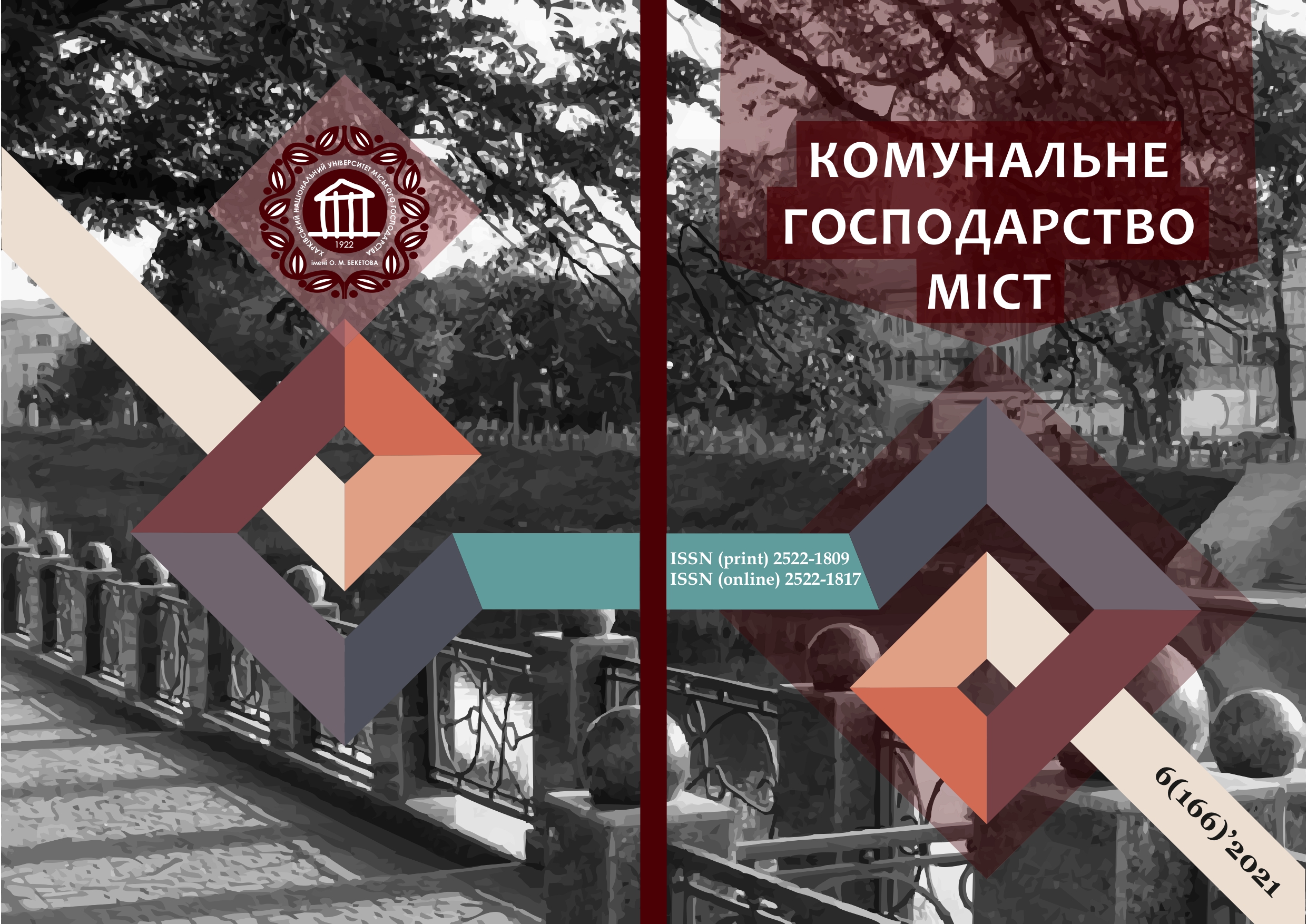USE OF GEOINFORMATION SYSTEMS IN THE SOLUTION OF PROBLEM ASPECTS OF PROVIDING EDUCATIONAL ACTIVITY IN MODERN CONDITIONS
Array
Keywords:
geographic information systems, educational activity, legislative base, transformation processes, contingent of students, dual education.Abstract
It is determined that at the present stage of economic transformation the approaches to educational activity need to be reconsidered, as transformation processes are associated with inhibition of development trends, reduction of key performance indicators of economic entities, reduction of production and economic potential, negative impact of COVID-19. Proven need to train specialists who meet modern conditions can use tools, information technology.
The aim of the research is to determine the problematic aspects of providing educational activities in modern conditions. To achieve this goal the following tasks are solved: substantiation of modern directions of functioning of educational activity; identification of problems in providing educational activities; formation of perspective directions of development of educational activity. Geographic information is a significant part of the information resources that modern society needs. Its completeness, accuracy, reliability and accessibility determine the country's functioning and adequate effective development of all spheres of its life: economy, culture, science and education, mass media, eco-territory, domestic and foreign policy, defense, etc. Technologies for registration, generalization, transmission, transformation and perception of such information, called geoinformation, allow to re-approach its use through work in the environment of geographic information systems (GIS).
The special significance of realization of transformational directions concerning rethinking of approaches to modernization of organizational structure of higher educational institutions is defined. In particular, the consolidation of structural units and the creation of institutions in the system of university education.
The directions of the decision of problem aspects concerning growth of quality of educational activity are offered.
References
2. Velychko, A.V., Kalko, I.V. (2007) Questions of budget financing of educational institutions. Education of Donbass 5, 75–84. [in Ukrainian]
3. Goncharov, Y., Kasych, A. (2007) Scientific potential as a factor in the development of innovation and investment system of Ukraine. Economy of Ukraine 3, 42–51. [in Ukrainian]
4. Drobnokhod, M. Present and problems of higher education in Ukraine. URL: http://anvsu.org.ua/index.%20files/Zagalni%20zvory.htm Accessed 07 June 2021. [in Ukrainian]
5. Krasnyakov, E. (2011) State educational policy: the essence of the concept, system, historical and political aspects. Viche 20, 21–24. [in Ukrainian]
6. Lomanov, I. (1996). Remuneration of workers in science, higher education, health and education. Conceptual bases of its differentiation. Ukraine: aspects of labor 2, 40–45. [in Ukrainian]
7. Nesterenko, P.V. (2010). Perspective changes in the legal regulation of higher education institutions in connection with the accession of Ukraine to the Bologna process. Bulletin of Taras Shevchenko National University of Kyiv. Philosophy. Political science 94/96, 116–119. [in Ukrainian]
8. Constitution of Ukraine. № 254k / 96-BP. Edited from 01.01.2020. URL: https://zakon.rada.gov.ua/laws/show/конституція%20україни#Text Accessed 08 June 2021. [in Ukrainian]
9. About Education: Law of Ukraine № 2145-VIII. Editorial from 24.06.2020. URL: https://zakon.rada.gov.ua/Laws/show/2145-19#text Accessed 08 June 2021. [in Ukrainian]
10. About higher education: Law of Ukraine № 1556-VII. Edited from 25.09.2020. URL: https://zakon.rada.gov.ua/laws/show/1556-18#Text Accessed 08 June 2021. [in Ukrainian]
11. On the Consular Statute: Decree of the President of Ukraine № 127/94. Edited on May 21, 2002. URL: https://zakon.rada.gov.ua/laws/show/127/94#Text Accessed 08 June 2021. [in Ukrainian]
12. Issues of the National Information Center for Academic Mobility: Resolution of the Cabinet of Ministers of Ukraine № 924-2011-n. Adoption from 31.08.2011. URL: https://zakon.rada.gov.ua/laws/show/924-2011-p#Text Accessed 08 June 2021. [in Ukrainian]
13. Convention on the Recognition of Qualifications concerning Higher Education in the European Region (Lisbon, 11 April 1997), ratified by the Law of Ukraine «On Ratification of the Convention on the Recognition of Qualifications concerning Higher Education in the European Region» of 03.12.1999 № 1273-XIV. URL: https://zakon.rada.gov.ua/laws/show/994_308 Accessed 08 June 2021. [in Ukrainian]
14. Convention on the Recognition of Courses, Diplomas of Higher Education and Degrees in the States of the European Region (Paris, December 21, 1979), ratified by the Decree of the Presidium of the Verkhovna Rada of the Ukrainian SSR «On Ratification of the Convention in the countries of the region of Europe» from 11.01.82 № 2993-X. URL: https://zakon.rada.gov.ua/laws/show/995_261#Text Accessed 08 June 2021. [in Ukrainian]
15. Convention abolishing the requirement of legalization of foreign official documents (The Hague, October 5, 1961). Accession of Ukraine in accordance with the Law of Ukraine «On Accession of Ukraine to the Convention Abolishing the Requirement of Legalization of Foreign Official Documents» of January 10, 2002 № 2933-III. URL: https://zakon.rada.gov.ua/laws/show/995_082#Text Accessed 08 June 2021. [in Ukrainian]
16. Humanitarian policy of the Ukrainian state in the newest period: monograph. (2006). Ed. SI Zdioruk. NISD, Kyiv. [in Ukrainian]
17. National strategy for the development of education in Ukraine for the period up to 2021. URL: https://zakon.rada.gov.ua/laws/show/344/2013#Text Accessed 10 June 2021. [in Ukrainian]
Downloads
Published
How to Cite
Issue
Section
License
The authors who publish in this collection agree with the following terms:
• The authors reserve the right to authorship of their work and give the magazine the right to first publish this work under the terms of license CC BY-NC-ND 4.0 (with the Designation of Authorship - Non-Commercial - Without Derivatives 4.0 International), which allows others to freely distribute the published work with a mandatory reference to the authors of the original work and the first publication of the work in this magazine.
• Authors have the right to make independent extra-exclusive work agreements in the form in which they were published by this magazine (for example, posting work in an electronic repository of an institution or publishing as part of a monograph), provided that the link to the first publication of the work in this journal is maintained. .
• Journal policy allows and encourages the publication of manuscripts on the Internet (for example, in institutions' repositories or on personal websites), both before the publication of this manuscript and during its editorial work, as it contributes to the emergence of productive scientific discussion and positively affects the efficiency and dynamics of the citation of the published work (see The Effect of Open Access).

